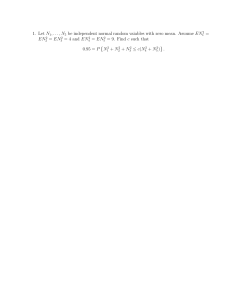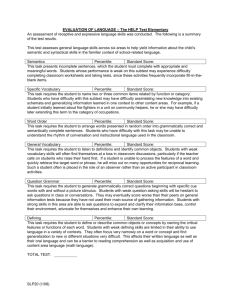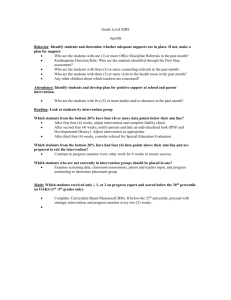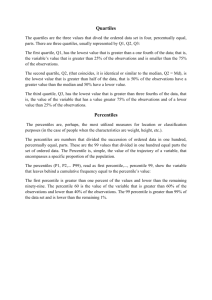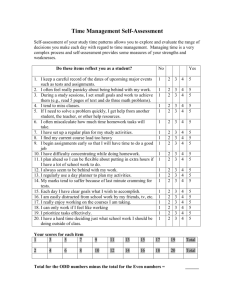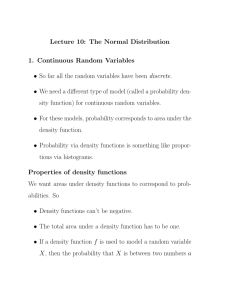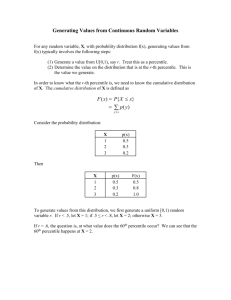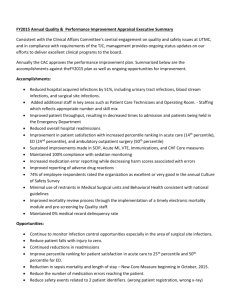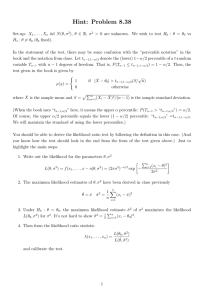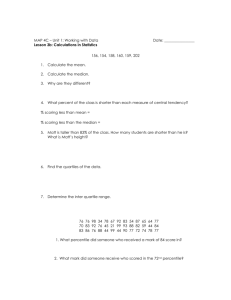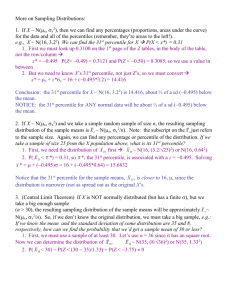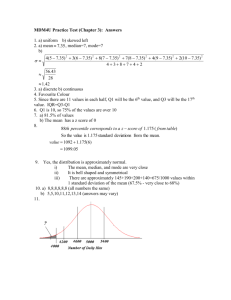Visual Explanation of Academic Peers
advertisement
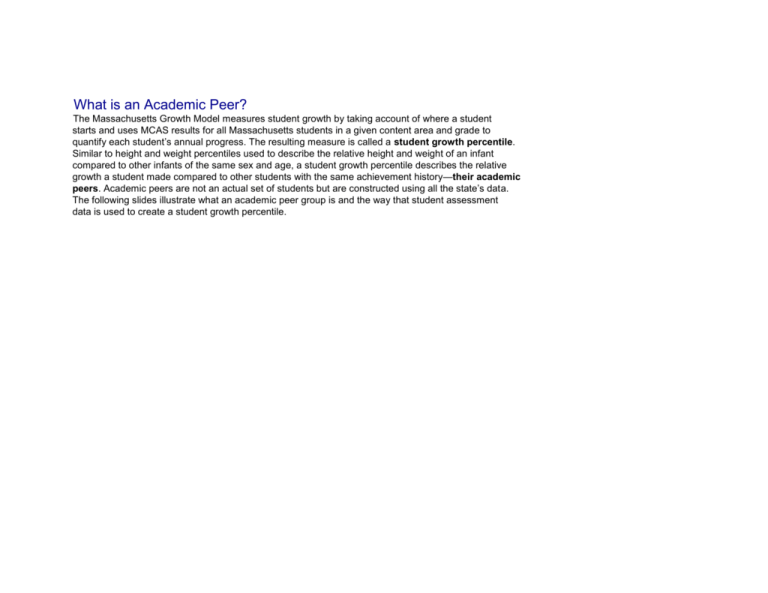
What is an Academic Peer? The Massachusetts Growth Model measures student growth by taking account of where a student starts and uses MCAS results for all Massachusetts students in a given content area and grade to quantify each student’s annual progress. The resulting measure is called a student growth percentile. Similar to height and weight percentiles used to describe the relative height and weight of an infant compared to other infants of the same sex and age, a student growth percentile describes the relative growth a student made compared to other students with the same achievement history—their academic peers. Academic peers are not an actual set of students but are constructed using all the state’s data. The following slides illustrate what an academic peer group is and the way that student assessment data is used to create a student growth percentile. Two Years of Test Scores Accounting for where a student starts Identifying relative growth A Student Growth Percentile of 40 A Student Growth Percentile of 75 Academic Peers start from the same place All data is used to determine a student growth percentile All data is used to determine a student growth percentile Low & High Achieving students demonstrate growth Low & High Achieving students demonstrate growth
